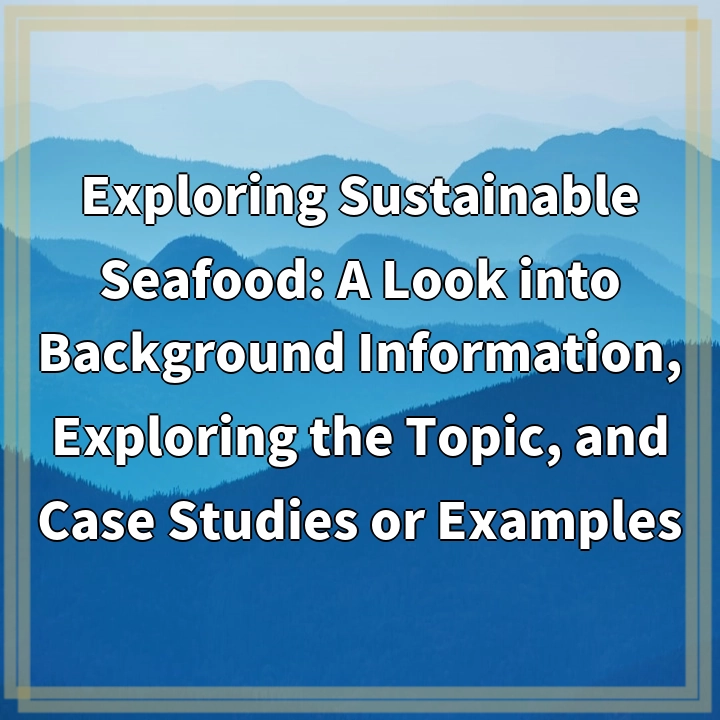Physical Address
304 North Cardinal St.
Dorchester Center, MA 02124
Physical Address
304 North Cardinal St.
Dorchester Center, MA 02124

Sustainable seafood refers to seafood that is caught or farmed using practices that minimize the impact on the environment, maintain the long-term health of the seafood populations, and support the well-being of the fishing communities and workers involved.
The pursuit of sustainable seafood faces several challenges and real-world problems that need to be addressed. These issues include:
One of the primary problems in the seafood industry is overfishing. Overfishing occurs when more fish or other marine species are harvested than can be replenished naturally. This depletes fish populations, disrupts ecosystems, and threatens marine biodiversity.
Some fishing practices, such as bottom trawling or using dynamite or cyanide to catch fish, can cause significant damage to marine habitats and ecosystems. These destructive practices can destroy coral reefs, seafloor habitats, and other crucial marine environments.
IUU fishing refers to fishing activities that occur outside of national or international regulations. This includes fishing without proper licenses, exceeding quotas or catch limits, and the use of illegal gear or methods. IUU fishing undermines conservation efforts, leads to unfair competition, and threatens the sustainability of fish stocks.
Bycatch is the unintended capture of non-targeted species during fishing operations. Turtles, marine mammals, seabirds, and other marine species often become bycatch, resulting in injury or death. Bycatch not only harms vulnerable species but also contributes to ecosystem imbalances.
The aquaculture industry, which involves farming seafood in controlled environments, can also have negative environmental impacts. Unsustainable aquaculture practices can lead to the pollution of waterways with excess feed and waste, the spread of diseases to wild populations, and reliance on unsustainable feed sources.
Addressing the problems associated with sustainable seafood requires collective efforts and a commitment to sustainable practices. Here are some solutions:
Utilizing scientific data and research to set catch limits, establish sustainable fishing quotas, and implement effective fisheries management strategies can help prevent overfishing and support the recovery of depleted fish populations.
Encouraging the adoption of sustainable fishing methods, such as selective fishing gear and techniques that minimize habitat destruction and bycatch, can help protect marine ecosystems and reduce the overall impact of fishing operations.
Enforcing regulations and improving monitoring and surveillance systems are essential to combat illegal, unreported, and unregulated fishing. This includes promoting transparency in the seafood supply chain to ensure that only legally caught and properly documented seafood enters the market.
Investing in research and development of sustainable aquaculture practices, such as using responsible feed sources, minimizing pollution, and reducing the use of antibiotics, can help meet the growing demand for seafood while minimizing environmental impacts.
Educating consumers about the importance of sustainable seafood choices and providing them with information and tools to make informed purchasing decisions can drive market demand for sustainable products and encourage the seafood industry to prioritize sustainability.
Sustainable seafood is crucial for the health of our oceans, the livelihoods of fishing communities, and the future of our planet. By addressing the challenges and implementing sustainable practices, we can ensure a healthy and abundant seafood supply for generations to come.
If you’re wondering where the article came from!
#